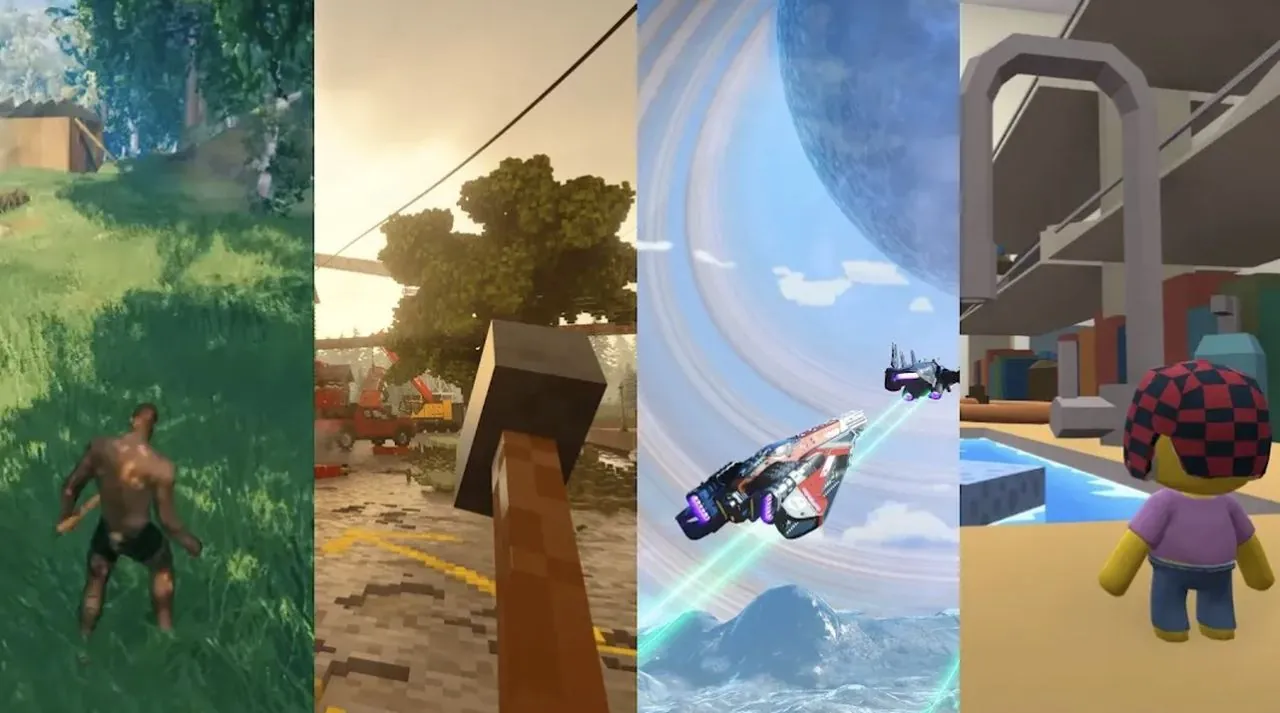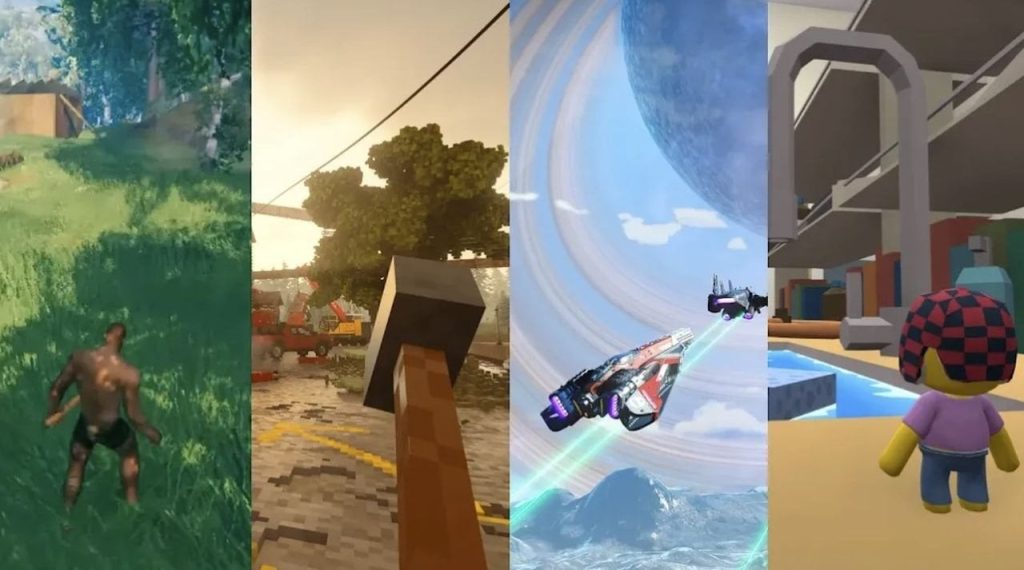
What if the next great leap in artificial intelligence wasn’t born in a lab or a boardroom, but in the vibrant, pixelated worlds of video games? Bold as it may sound, this is exactly what Google DeepMind is betting on. By merging innovative neural networks with generative AI, they’re crafting immersive, dynamic 3D environments that are more than just entertainment—they’re training grounds for the future of AI. Imagine an AI agent learning to navigate a bustling city or solve complex problems within a simulated ecosystem, all while the environment reshapes itself in real time. This isn’t just a technological curiosity; it’s a paradigm shift. The implications stretch far beyond gaming, touching everything from robotics to climate modeling. And at the heart of it all lies a question: could video games hold the key to creating a true artificial general intelligence (AGI)?
In this exploration, Wes Roth uncovers the surprising role of generative AI in providing widespread access to game creation, reducing development costs, and allowing new AI training. You’ll discover how projects like Google DeepMind’s “Genie” and “Sema” are pushing the boundaries of what’s possible, crafting 3D worlds from simple prompts and teaching AI agents to adapt like humans. But the story doesn’t stop there. These advancements are poised to transform industries far beyond gaming, from healthcare to urban planning. Whether you’re a tech enthusiast, a gamer, or someone curious about the future of AI, this journey into the intersection of video games and AGI will challenge your perspective. After all, what if the games we play today are shaping the intelligence that will guide us tomorrow?
Generative AI in Gaming
TL;DR Key Takeaways :
Google DeepMind is using generative AI and neural networks to create dynamic, interactive 3D environments, transforming game development and AI training.
Generative AI enables real-time creation of immersive 3D worlds from simple prompts, providing widespread access to game design and reducing development costs.
Applications extend beyond gaming, including AI training simulations, robotics, scientific research, and policy testing, showcasing its versatility across industries.
Notable projects like Google DeepMind’s “Genie” and “Sema” and Microsoft’s “Muse” highlight the fantastic potential of AI-driven simulations and content generation.
These advancements have broader societal implications, offering solutions for robotics, healthcare, urban planning, and global challenges like climate change and disease modeling.
Generative AI: Redefining Game Development
Generative AI is at the core of this technological shift, allowing AI systems to create 3D worlds and gameplay in real time based on simple prompts, such as text descriptions or images. These environments are not static; they are interactive, dynamic, and capable of adapting to user input, providing a level of immersion previously unattainable.
Imagine describing a bustling city or a serene mountain range, and within moments, the AI generates a fully realized, explorable world complete with realistic physics, weather systems, and ecosystems. This capability is transforming game development in several ways:
Automating complex tasks: The creation of intricate environments and gameplay mechanics is streamlined, significantly reducing time and costs.
Empowering creators: Non-developers can now design their own games and simulations, making the technology accessible to a broader audience.
Focusing on innovation: Developers can dedicate more time to creativity and storytelling rather than labor-intensive design processes.
This widespread access of game development is not only transforming how games are made but also expanding who can participate in the creative process.
Applications Beyond Gaming
While the gaming industry is a natural beneficiary of these advancements, the potential applications of generative AI extend far beyond entertainment. One of the most promising areas is AI training simulations. By placing AI agents in diverse, simulated environments, researchers can train them for tasks such as navigation, problem-solving, and resource management. These virtual worlds serve as controlled environments where AI can learn and adapt without the risks or constraints of the real world.
In robotics, this approach could bridge the gap between virtual and physical tasks. For instance, a robot trained to navigate a simulated warehouse could apply those skills in a real-world setting with minimal adjustments. Beyond robotics, generative AI-powered simulations could be used for:
Scientific research: Modeling complex phenomena such as disease spread or climate change.
Policy testing: Simulating the outcomes of policy decisions to provide actionable insights.
Data collection: Studying intricate systems in a controlled, virtual environment to gather valuable data.
These applications highlight the versatility of generative AI, showcasing its potential to address challenges across multiple domains.
Google Deepmind’s Videogame AGI
Unlock more potential in Generative AI by reading previous articles we have written.
Why Neural Networks Matter
The integration of neural networks into 3D environment generation is a key factor driving these advancements. Neural networks enable AI systems to learn and adapt, eliminating the need for manual coding of every element. This approach offers several significant advantages:
Efficiency: Reduces development time and costs by automating complex processes.
Accessibility: Makes game and simulation creation possible for individuals without technical expertise.
Adaptability: Creates infinite, dynamic environments that respond to user interactions, complete with realistic physics and ecosystems.
For example, Google DeepMind’s “Genie” project demonstrates the potential of this technology by generating expansive 3D worlds from a single image. Similarly, Microsoft’s “Muse” uses generative AI for gameplay ideation and rapid prototyping, allowing developers to experiment with new concepts efficiently. These innovations underscore the fantastic role of neural networks in shaping the future of AI-driven simulations.
Notable Projects Leading the Way
Several new projects are paving the way for the integration of generative AI and neural networks into gaming and beyond:
Google DeepMind’s Genie: Focuses on creating expansive, interactive 3D environments, showcasing the potential for AI-driven content generation.
Google DeepMind’s Sema: A generalist AI agent capable of learning to play games like a human, using vision and standard controls to adapt to various scenarios.
Microsoft’s Muse: Uses generative AI to streamline gameplay ideation and prototyping, empowering developers to explore new ideas with ease.
These projects highlight the diverse applications of generative AI, from enhancing creativity in game design to allowing broader societal benefits.
Broader Implications for Society
The advancements in generative AI and neural networks have far-reaching implications for society. Training universal AI agents capable of adapting to various tasks and environments is a key objective. These agents could be deployed across industries where adaptability and problem-solving are critical, such as:
Robotics: Improving automation and operational efficiency in sectors like manufacturing and logistics.
Healthcare: Assisting in diagnostics, treatment planning, and patient care through adaptive AI systems.
Urban Planning: Simulating city environments to optimize infrastructure and resource allocation.
Large-scale simulations powered by AI could also address pressing global challenges. For example, virtual models of disease outbreaks could inform public health strategies, while environmental simulations might guide climate policy. These tools have the potential to advance technology, science, and society, offering innovative solutions to complex problems.
From Gaming to Global Impact: A Historical Perspective
The connection between video games and AI development has a long history. Games like Doom and StarCraft have historically served as testing grounds for AI models, pushing the boundaries of what these systems can achieve. Today, the integration of neural networks and generative AI builds on this legacy, offering applications that extend far beyond gaming.
The development of realistic, data-rich virtual worlds has the potential to redefine how we approach problem-solving and innovation. While the gaming industry will continue to benefit from these advancements, the broader goal is to create adaptable, immersive environments that can address challenges across industries. By using these technologies, AI is poised to reshape industries, enhance scientific research, and tackle complex global issues, bridging the gap between virtual and physical worlds.
Media Credit: Wes Roth
Filed Under: AI, Top News
Latest Geeky Gadgets Deals
Disclosure: Some of our articles include affiliate links. If you buy something through one of these links, Geeky Gadgets may earn an affiliate commission. Learn about our Disclosure Policy.

